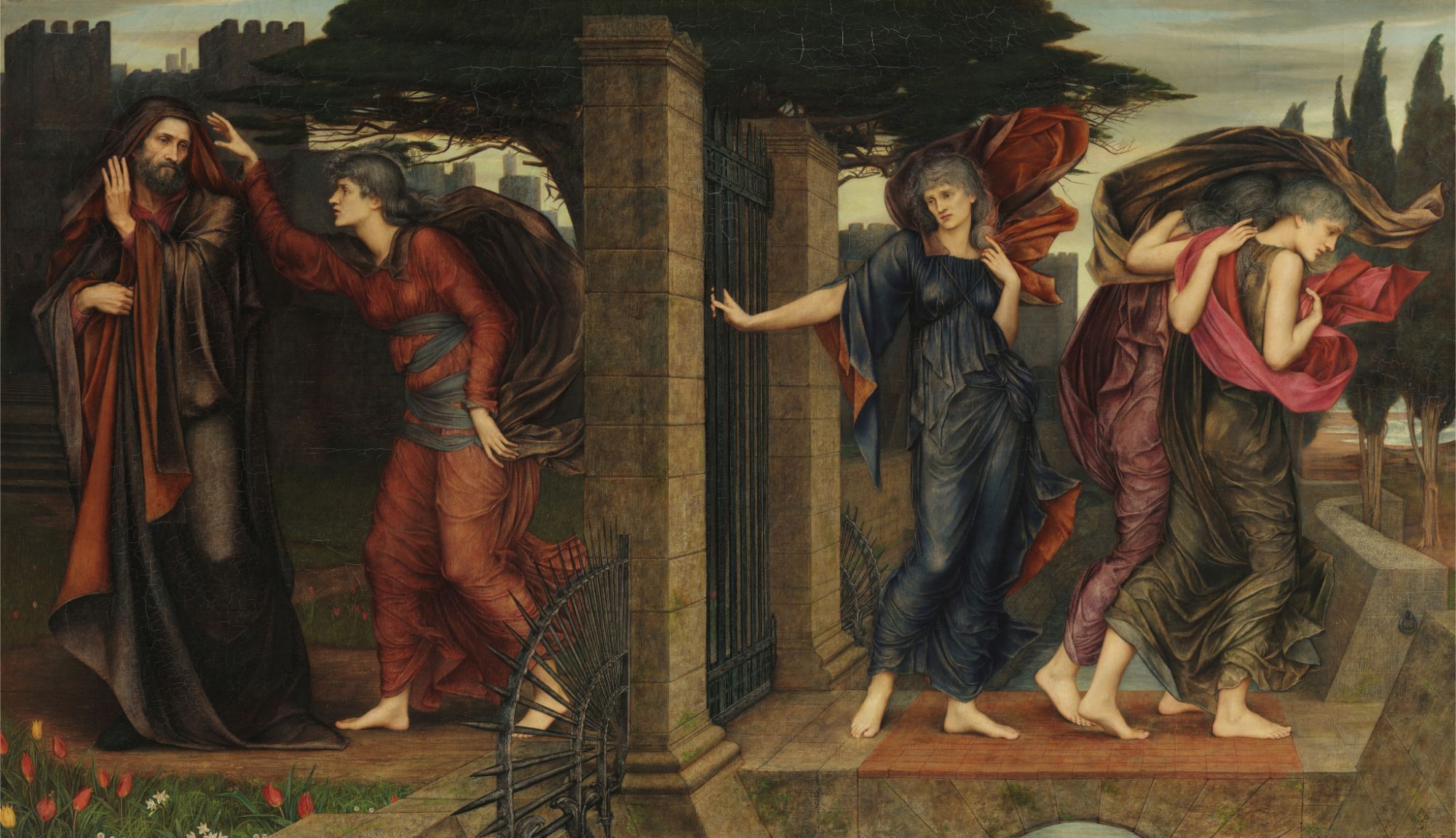| Object Number: | P_EDM_0004 | |
| Date: | 1880 - 1881 | |
| Category: | Highlights, Oil on canvas, and Paintings | |
| Material: | Oil on canvas | |
| Dimensions: | Frame: H 1320 x W 2034 x D 65 mm | |
| Inscriptions: | Signature, 1881, EP 1880 - 1881 |
This painting depicts a crucial scene from Goethes Faust. God and the Devil (Mephistopheles) discuss a wager the devil says Allow me to take over the management of Fausts existence and you will lose him. God has confidence that mankind can gain salvation by its own efforts, in spite of the intervention of evil and agrees. Mephistopheles makes a pact with Faust I will serve you on earth and you will serve me in the hereafter. Mephistopheles grants Faust worldly wealth and an extended life and attempts to corrupt him. Faust has a palace, which can be seen in the painting, set in beautiful parkland. But an old couple live nearby, in a grove of lime trees, caring for a chapel whose church bells disconcert Faust. He asks Mephistopheles to evict the old couple, but Mephistopheles kills them and sets the cottage ablaze. The smoke assumes the shape of four phantom female figures, who announce themselves to Faust as Want, Debt, Care and Need. They were living with the old couple, whose deaths have released them. Want, Debt and Need cannot get into the rich mans palace and are seen turning away from his gate. But Care slips through the gate and approaches Faust. He could use magic to dismiss her, but he has finally decided to stand alone as a human being and cast away the supernatural aids which had brought him to this point. Care breathes upon him and he is blinded. But she cannot break him, he has turned from material to spiritual things. Having discarded magic, he is suddenly exposed to all the frailties of old age. He fumbles his way back into his palace, sure now of the worthlessness of earthly things. The truth for which he had searched so long has come to him at last. His life is over and he falls back and dies. Gods confidence in Faust is therefore justified, and Mephistopheles has failed to win the wager. This depiction of the struggle between the higher and lower natures in man and the underlying belief in the innate goodness of humanity is a recurring theme in Evelyns paintings.


